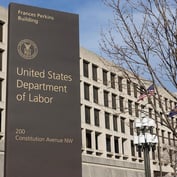The head of the Senate Homeland Security and Governmental Affairs Committee recently told Labor Secretary Thomas Perez to halt implementing the Department of Labor’s “burdensome” fiduciary rule because it will likely be “undone” by the incoming Trump administration.
In a Nov. 22 letter to Perez, Sen. Ron Johnson, R.-Wis., chairman of the committee, told Perez that like DOL’s overtime rule, which was halted recently by a Texas federal judge, there is also “substantial likelihood” that DOL’s fiduciary rule will be dismantled.
“I urge the Labor Department to cease implementation of the regulation immediately to spare low- and middle-income Americans, financial advisors and small businesses from the unnecessary and avoidable burdens that will drive up the costs of services and decrease access,” Johnson told Perez in his letter. “I hope the Labor Department will acknowledge the reality of the situation and avoid imposing unnecessary costs and burdens in further implementation of regulation that will very likely be rescinded.”
In late February, Johnsnon released a study that charged DOL with “ignoring and rejecting” concerns raised by the Securities and Exchange Commission on how to craft its rule to change the definition of fiduciary on retirement advice, resulting in a “flawed process” in devising a plan that “could ultimately hurt American retirement savers.” Johnson’s committee also held a hearing in April on DOL’s rule.
Meanwhile, Phyllis Borzi, assistant secretary of Labor for DOL’s Employee Benefits Security Administration, refused Thursday to concede that the fiduciary rule that she championed and fought so hard to see passed would be defeated by the incoming Trump administration.
See also: DOL rule faces certain death under President-elect Trump
“We know that once these market forces have been unleashed, we’re not really going back to the old days,” Borzi said during remarks at the Consumer Federation of America’s financial services conference in Washington.
“I’m not going to speculate on what a future administration would do, but I will say this: The customer-first principle that’s embodied in this rule has already taken hold in the marketplace, and companies are not going back; they are going to continue to move in that direction. The speed at which they move may vary depending on what happens, but I’m not going to conclude that this rule is going away.”
Borzi will soon depart her position, along with Labor Secretary Thomas Perez.
Labor’s fiduciary rule, six years in the making, “is already effective,” Borzi said, noting its first set of principles take effect in April. “It’s a really, really, really important rule,” she said, acknowledging that Perez was her secret weapon in getting the rule across the finish line.
She reiterated the fact that during the rulemaking process, DOL “met overwhelmingly” with the rule’s opponents. But, she continued, “We knew this [rule] was the thing to do. We knew that it would require lots of changes in business models that had been well-established for decades.”
She added: “Are there unintended consequences and changes we could make to make it better? Of course.”








 December 05, 2016 at 03:45 AM
December 05, 2016 at 03:45 AM










